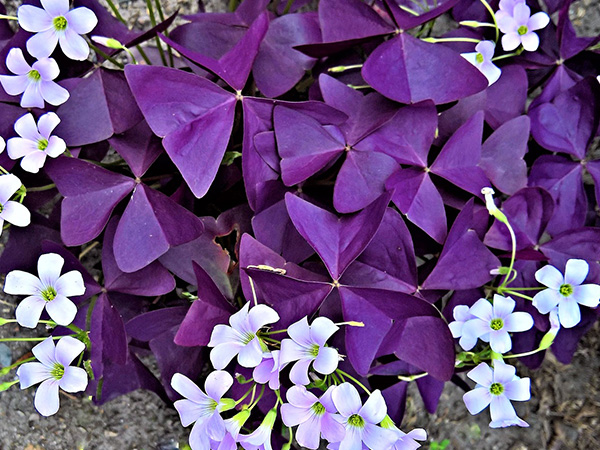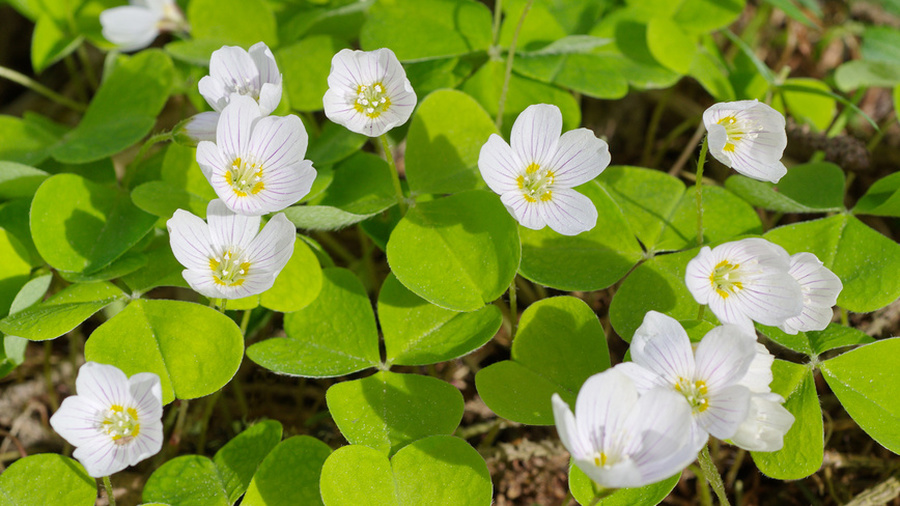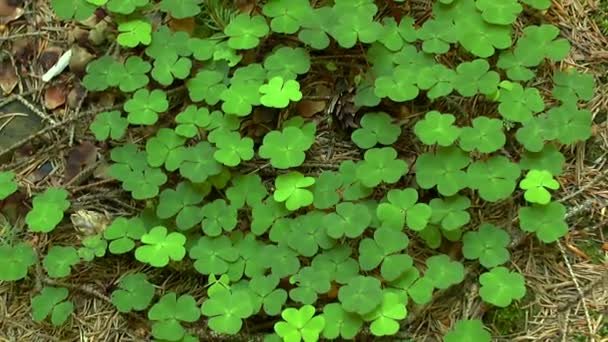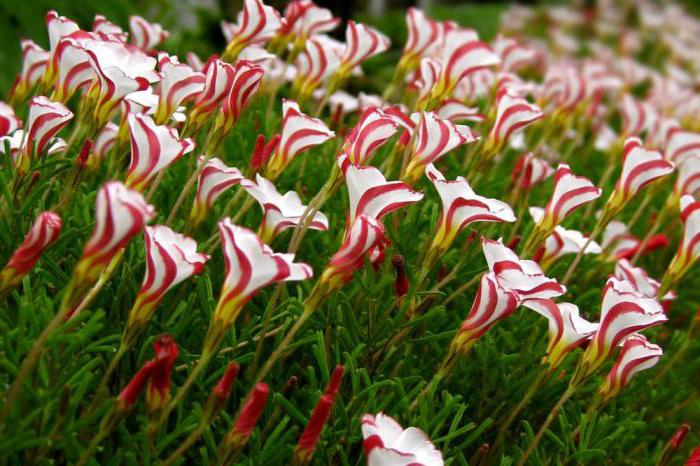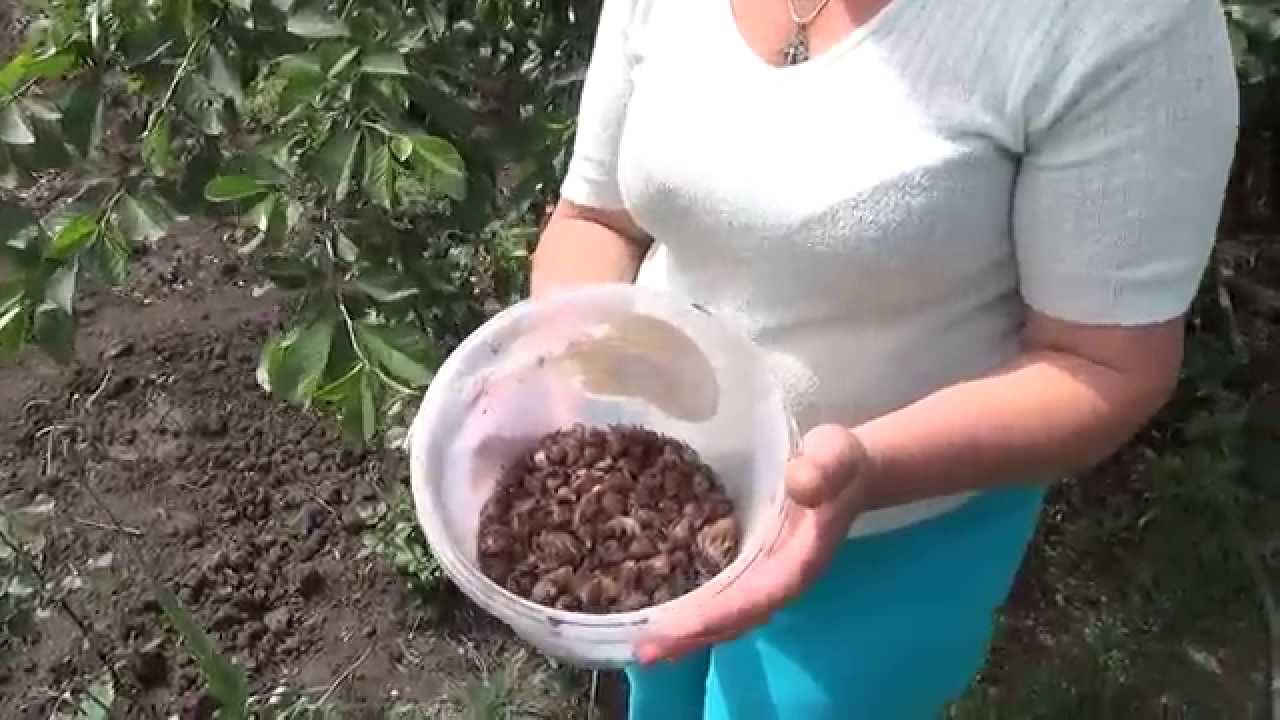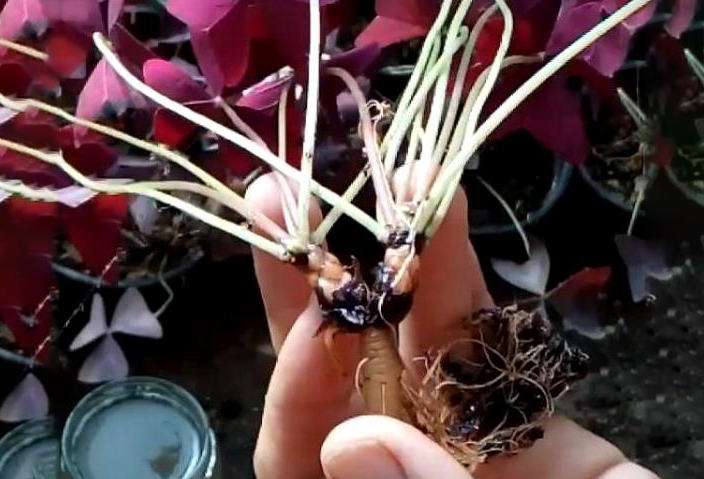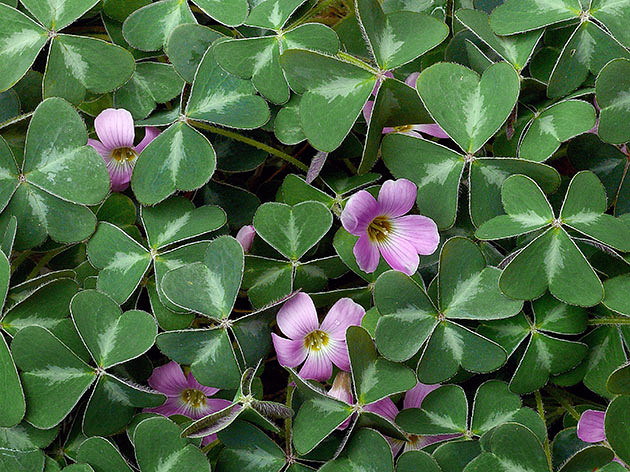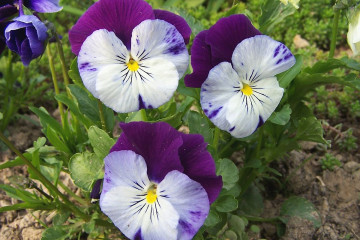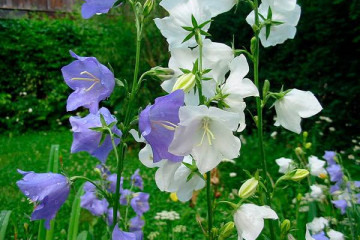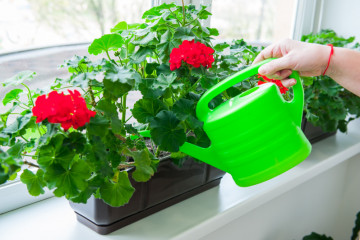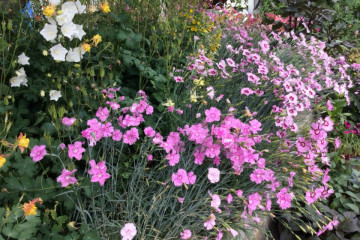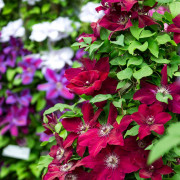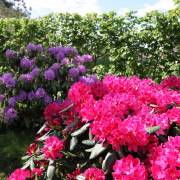Perennial garden oxalis - growing in the garden
Content:
Oxalis, or, as it is also called oxalis, is widespread in nature, and some varieties are actively used by gardeners for landscape design. The plant has a completely different appearance, which is determined by the shape and color of the leaf plates. As a flowering plant, sour cherry is not used, since the buds are small and dull in comparison with other garden crops.
Perennial garden oxalis - what kind of flower is it?
Kislitsa belongs to the Kislichny family and has about 800 species. Distinguish between annual and perennial options. Among this variety, garden oxalis is considered especially popular. It has medicinal properties and also has an attractive appearance.
A short description of what it looks like
Perennial street oxalis has a very unremarkable appearance. Usually grows in tubers. The buds are small and have 5 round petals. Flowers can be of different colors, but they are usually pastel warm colors. Dark red streaks are clearly visible on the petals.
The perennial has the same appearance. The leaves of the flower are three-toed, but there is also a four-leafed version of the structure. The color of the plates can be dark green or light green. There are varieties in which the leaf plate has a rich burgundy color or two-tone color.
What types of oxalis are best for growing in the garden
Among the variety of varieties, there are several that are especially "convenient" to grow in the garden. The most popular varieties of oxalis garden:
- Purple oxalis in the garden in the garden is the most popular variety of this culture. The leaves are triangular. Platinum is colored deep purple with a clear transition of tone from dark to lighter.
- Four-leafed oxalis has the original color of platinum leaf. In the center of the leaf formation there is a dark brown spot, which smoothly turns into green.
- The carob variety is perceived by many as a beautiful weed. The bush tolerates unfavorable growing conditions quite persistently. The leaves are brown. The flowers are very small, light pink in color.
- Red oxalis in the garden stands out against the background of other plants with its unusual color of leaves. Flowering takes place almost all summer, so the variety is actively used as a decoration for flower beds.
There are other popular varieties that are widespread among amateur gardeners. These include common oxalis, tuberous, ferruginous.
How to plant correctly in the country
Garden acid, planting and caring for it in the open field is not difficult. It can become a real decoration for any flower bed. Although the flower is not whimsical during the growth period, it is worth taking care of the correct planting of the specimen from the very beginning. Usually, special attention is paid to temperature indicators and soil composition.
Temperature at different times of the year
Growing the species is possible only if the temperature regime is correctly selected. But it is even more important to choose the correct temperature readings during the planting period. It is produced at a time when the air temperature will be at least +10 ℃ both day and night.
Planting is done in autumn and spring. The main thing is that the weather is good. In autumn, bushes can be planted in mid-September, and in spring at the end of April.
Soil features
The flower loves well-fertilized soil of medium acidity. As a basis, it is worth using a mixture of turf, humus and ordinary garden soil. The proportion of these components is represented by this ratio 1: 1: 1.
Mix all parts of the substrate and place in a prepared well. After that, you will have to feed the earth more than once.
Rules for caring for garden sour in the open field
In order for the oxalis to develop normally and not perish in the open field, it is worth taking proper care of it. The flower has a very important property - it is quite frost-resistant, but still requires proper preparation for wintering.
Proper watering and timely feeding are important aspects of care. The bushes, although low, bloom magnificently for a long period. This means that a huge amount of nutrients from the soil are consumed.
Fertilization and watering
The flower loves moisture, so in the summer you need to water it every 2 days. It is necessary to closely monitor the condition of the earthen coma around the stems. If the soil is waterlogged, the oxalis may die.
As for feeding, the plant has a special schedule for carrying out this procedure:
- The first feeding is done in the spring, after the winter shelter has been removed.
- The second is at the moment the buds appear.
- The third - 1 month after the second.
Reproduction of street acid
The plant can be quickly planted in the garden if the correct propagation method is chosen. Street oxalis can multiply in several ways:
- seeds;
- cuttings;
- bulbs or tubers.
In order for oxalis in the country to appear in large quantities and in a short time, it is better to use reproduction by dividing the tubers. More problematic and laborious are the methods of sowing seeds and cuttings.
Seeds
Sowing seeds is usually done directly in open ground. The procedure for laying planting material is carried out already at the end of March or beginning of April. It is necessary to prepare a bed in the garden, namely to dig up the ground and process it with a rake, to form small sides along the entire perimeter.
The seeds are laid on top of the soil; you do not need to sprinkle them with earth. Sowing is covered with glass. During the germination period, you do not need to open the garden, when the temperature on the street recovers +17 ℃, you can remove the glass and start picking the seedlings.
Vegetative
Perennial garden acid can also propagate vegetatively. The principle of reproduction by dividing roots has the following algorithm:
- Dig up an adult bush. Determine where the taproot is. Around it are sprouts with obvious tubers. They need to be separated from the main copy.
- Prepare the soil. The sprouts are planted in open ground at a distance of 10 cm from each other. You can plant the sprouts in separate pots.
- Sprinkle the roots with soil and water. It is advisable to irrigate young plantings with a spray bottle. When the shoots take root, you can start watering from the watering can.
Lush bushes are usually observed after 45 days. Flowering begins during this period. For the first time, a huge number of flowering buds appear on the plant.
Cuttings
You can propagate the plant by cuttings.You need to cut off the stem with the leaf. You can temporarily install it in a container with water and wait for the formation of roots, or immediately plant the cutting in sod soil, mixed with humus and ordinary garden soil.
During the rooting period, the cutting is thoroughly watered and monitored. When the plant takes root normally, then it is transplanted to a permanent place of growth.
Possible diseases and pests
Although oxalis is a street flower, pests rarely attack it. In some cases, insects such as:
- spider mite;
- whitefly;
- aphid;
- shield.
A big threat in terms of disease can be fungal diseases that affect the root system. The reason for the appearance of such troubles can be plentiful watering not on schedule.
Kislitsa in omens and superstitions
There are a lot of signs and superstitions that are associated with this type of plant. The people know that the oxalis in the garden has such a meaning:
- a flower growing in the garden brings success and good luck to residents;
- oxalis is an excellent amulet for loving couples;
- if such a flower appears in the garden, then a profit awaits the family;
- additionally oxalis protects the house from gossip and failure.
The leaves of the flower contain a lot of oxalic acid. In some cases, the aerial part is eaten. The plant has a good reputation among the people.
Oxalis is a popular variety of garden flowers, which are actively used in many countries to decorate flower beds. The culture is unpretentious to care for, it is easy to propagate in large quantities. Thanks to these indicators, gardeners choose oxalis for cultivation in the plots.
